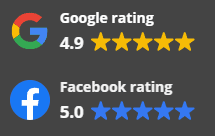
Looking for a job can be extremely time and energy consuming. So when you’ve put a lot of preparation into applying for roles, it can be immensely stressful and demoralising for it to end in rejection. However, with the right mindset that rejection can bring you one step closer to your goal, it’s just knowing what you need to do next.
That’s why we’ve provided a quick guide on how to turn that bad news into a small stepping stone to your dream job.


At this point there’s no advantage to arguing your case, so the main thing to do after a rejection is to understand the reasons why. The client has made their decision, now you have to understand how to better your chances the next time you get the opportunity. just remember, the key thing when accepting feedback is to try not to take it personally, it’s only there to help.

The next step is to then reflect. Reflecting on the feedback you received is important, so you can establish how to improve your performance next time. For example, do you need to spend more time preparing for the presentation? or did you focus too much on the Skills that were not relevant to the role? maybe you were too negative about past roles or previous employers?
Whatever the feedback, there are always ways to utilise this to ensure future improvement.
In addition, sometimes interview rejection can make you realise the position wasn’t actually right for you, and may help you refine your future job search accordingly. It may even completely redirect your career path, if so read our advice on how to make a successful career change for more information.

Sometimes rejection is completely out of your control. You could have had a really strong interview, however, another candidate may speak a second language or have other skills which the company may find useful. It is important not to dwell on these instances. You need to focus on the things you can change rather than those you cannot.

Sometimes rejection, especially repeated rejection can highlight a gap in your skills or knowledge that might be crucial for the role you are trying to secure. If so, arranging training and development within this area can be extremely beneficial. This shows employers you’re willing and committed to learning new skills, or to continue developing your own skills which can put you in a stronger position and make you stand out from the competition.

Learning to cope with rejection is an important part of job hunting. It is never a pleasant experience but it is important to remember that it does happen to everyone at some point. Try not to take it personally but use it as a learning experience. The most important thing is to be open minded and appreciate that the feedback is based on your performance on the day and what you said. Try to view it from the interviewer’s stance and use it to perfect your technique.

For any more advice or questions on rejection or finding a job, send us an email or give us a call and we’d be happy to help!
To keep up to date with all our recruitment activities, please follow us on Facebook , LinkedIn and Twitter.


